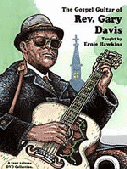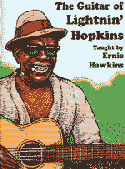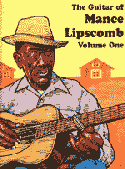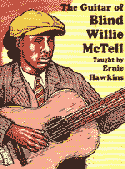

March/April 2001
Al DiMeola, "The Grande Passion," 2000
"The Grande Passion" is music on a grand scale. Al DiMeola succeeds in weaving acoustic guitar and symphonics
(courtesy of the Toronto Symphony Orchestra) into one musical fabric on five of the nine songs herein in a way
that is reminiscent of Pat Metheny's "Secret Story" or Oregon's "Oregon in Moscow". DiMeola has obviously matured
stylistically as well as chronologically since his debut with Return to Forever as a 19-year old fusion guitar god
who could machine-gun electric jazz riffs with pummeling effect. The report of incendiary 32nd note arpeggiations is still there,
but softened on an acoustic instrument and by the context of his partnership with Hernan Romero on charango,
John Pattitucci on acoustic bass and Mario Parmisano on acoustic piano. The music on "The Grande Passion"
is at once cerebral, spirited and zestful, obviously deeply influenced by Astor Piazzolla, who wrote three of the
songs ("Double Concerto", "Soledad", "Libertango") on this recording. Although the one thing missing here is
memorable melodies (this isn't exactly hummable music...), Al DiMeola again demonstrates that he is a guitar helmsman
committed to the highest artistry.
Ernie Hawkins, "Bluesified," 2001
I remember being a teen in the 70s listening to an obscure Gary Davis Biograph LP thinking how cool it would be to learn
how to fingerpick the blues like that on a 12-string. Ernie Hawkins must've thought so too, but
took it a few quantum steps further... he sought out the Reverend and became his
understudy in 1965.
Maybe it's this tangible and direct link to one of acoustic blues' original bloodlines that imparts to Hawkin's
music an authenticity that cannot be truly taught didactically, and is
immediately perceived by a listener via the heart and soul rather than the ears.
Not that Hawkins doesn't do his level best to serve as mentor and missionary for
the art... he is featured on Stefan Grossman's video instruction series for blues guitar techniques,
interpreting the styles of Lightnin' Hopkins, Willie McTell and Mance Lipscomb.
If you're a GenXer, born after the 1950s and so bypassed by the wave of vinyl archives of this lost
genre in the 60s and 70s, check out the solo rags that Hawkins churns out on
"Slow Drag" and "Hawkins Rag" as the next best thing to dropping a needle on an old Arhoolie or Yazoo LP.
Maria Muldaur wails some moving vocals on the gospel-like Gary Davis number "I Belong to the Band",
a number that envelops you with the swaying, hands-up-in-the-air contagion of
a Baptist revival. Lawdy, lawdy, this is authentic acoustic blues!
Dina Regine, "Be As It Will," 2000
On the back cover there's a familiar inclination to Dina Regine's head and the enigmatic Mona-Lisa
smile. And though the hat is not a beret and there's no little stogie wedged in the angle of her lips,
the cover image of Rickie Lee Jones' debut LP looms déja-vu-like as an icon. Regine has a bluesy,
cool-as-ice vocal delivery that occasionally carries a tinge of gravel like Rickie Lee or
Kim Carnes. The opening phrases of "To Get Back Home" in fact might convince
you that this is a pseudonymous Rickie Lee side project. There's some superb songwriting
and production happening on Regine's CD "Be As It Will". "Beautiful" incorporates a tasteful cello
accompaniment into a blues-tinged ballad. "Wild Love" is a soaring conglomerate of
self-harmonization that could be the flipside to Sheryl Crow's "Every Day is a Winding Road".
Regine uses an open-string acoustic sound to add a hypnotic drone-like vibe to her unique brand of
rock, especially heard on "Heaven's Road". "Leave it all Behind" and "Where You Go"
are ethereal, yet driving, in the spirit of U2. Very cool.
John Hackett and Steve Hackett, "Sketches of Satie," 2000
Erik Satie was a composer in the early part of the 20th century who was considered
one of the founding fathers of ambient minimalism, and who promulgated a genre which he dubbed
"Musique d'ameublement", literally "furniture music". The present-day embodiment
of such a term might be "elevator music", an ambient style to be assimilated subliminally
rather than by concentrated listening. So, it's a bit of a surprise that progressive rocker Steve Hackett of Genesis
might choose to transcribe and record Satie's "Gnossiennes", "Gymnopédies", "Nocturnes" and others
for solo classical guitar and flute. Satie's pieces are the exact antithesis
of progressive rock. One wonders if Hackett pursued this project as an act
of brotherly love, giving his brother John a showcase to define himself as a
flautist to the public. Prog-rocking fans might be disappointed with "Sketches
of Satie"... there's no ostentatious verve in Hackett's guitar work on this recording.
Hackett's talent is revealed in the transcriptions, but the genius is in the compostions
themselves which radiate an austere and otherworldly peace. Unfortunately,
if Satie were alive today, I'm afraid his CDs would be relegated to being sold in candle and massage
stores and other new age venues.
Franco Morone, "Guitarea," 1994
I'm not certain why the name Franco Morone is not on the lips of every serious guitar fan on
the planet. Morone is a gifted Italian composer and fingerstylist flaunting a fluid style
that embraces the listener with cavorting grace note pull-offs and melodies that
carry you far away. Though it's seven years old, "Guitarea" is one of those recordings in my
collection to which I keep returning, like a periodic pilgrimage. There's a power and jubilance
in these tunes that must resonate with a time of well-being in my life when I
heard them for the first time. Alternate tunings, harmonics, two-handed slap, deft
hammer-ons and pull-offs and bottleneck slide techniques are synthesized into one by
Morone to create his own intensely melodic and rhythmic personal style. Pierre Bensusan
may be the only comparison to enable a frame for the feel of Morone's music.
But really, Morone is truly unique, without comparison.
©
A.F.
Buy it at Amazon.com
©
A.F.
Buy it at Amazon.com
©
A.F.
Buy it at Amazon.com
©
A.F.
Buy it at Amazon.com
©
A.F.
Buy it at Amazon.com




